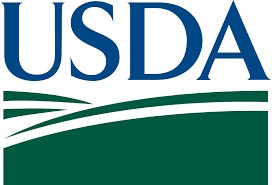Resource Details
Other
Emergency Watershed Protection (EWP-Recovery) Program
The EWP Program offers technical and financial assistance to help local communities relieve imminent threats to life and property caused by floods, fires, windstorms and other natural disasters that impair a watershed. EWP does not require a disaster declaration by federal or state government officials for program assistance to begin. The NRCS State Conservationist can declare a local watershed emergency and initiate EWP program assistance in cooperation with an eligible sponsor (see the Eligibility section below). NRCS will not provide funding for activities undertaken by a sponsor prior to the signing of a cooperative agreement between NRCS and the sponsor.
NRCS offers financial and technical assistance for various activities under the EWP Program, including:
Remove debris from stream channels, road culverts and bridges;
reshape and protect eroded streambanks;
correct damaged or destroyed drainage facilities;
establish vegetative cover on critically eroding lands;
repair levees and structures;
repair certain conservation practices, and
purchase of EWP Buyouts.
Eligibility
Recovery projects begin with a local sponsor or legal subdivision of state or tribal government. Eligible sponsors include cities, counties, towns, conservation districts, or any federally-recognized Native American tribe or tribal organization. Interested public and private landowners must work through a sponsor. Sponsors can apply for EWP Program assistance directly to NRCS while public and private landowners can apply for this assistance through a local sponsor.
The EWP Program cannot be used:
to address the same structural issue or practice 3 times within 10 years;
for existing operation and maintenance;
to repair, rebuild, or maintain any transportation facilities, utilities, or similar facilities;
to restore projects installed by another federal agency;
to repair nonstructural management practices;
to repair coastal erosions to beaches, dunes, and shorelines, including those along the Great Lakes;
if the recovery measures are eligible for the Emergency Conservation Program offered thru the Farm Service Agency (FSA).
Related Resources
DHS Assessment of Chemical Exposure Toolkit
U.S. Department of Health and Human Services
Health & Mental Health, Other, Sustainability, Workforce
The ACE Toolkit contains surveys, consent forms, training materials, and databases that can be easily customized for use in an assessment after a chemical incident.




